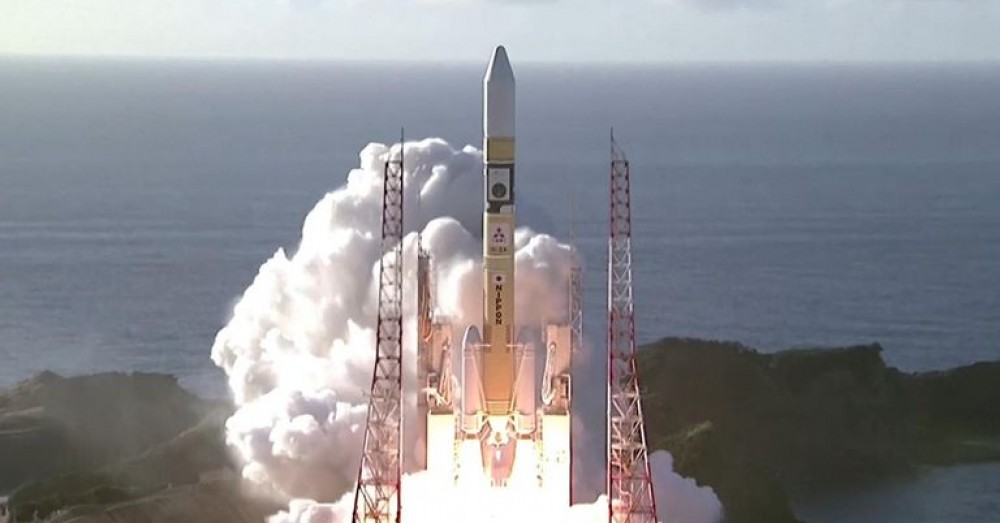The first Arab space mission to Mars blasted off Monday aboard a rocket from Japan, after weather delays set back the launch of the probe dubbed “Hope.”
A live feed of the launch showed the rocket carrying the unmanned probe, known as “Al-Amal” in Arabic, lifting off from the Tanegashima Space Centre in southern Japan.
“We have launched the H-IIA Launch Vehicle No. 42 (H-IIA F42) carrying aboard the Emirates Mars Mission’s (EMM) HOPE spacecraft... at 6:58:14 (JST) (2158GMT),” rocket manufacturer Mitsubishi Heavy Industries said in a statement shortly after the launch.
Five minutes after launch, the rocket carrying the probe was on course, carrying out the first separation of its flight.
The Emirati project is one of three racing to Mars, including Tianwen-1 from China and Mars 2020 from the United States, taking advantage of a period when the Earth and Mars are nearest.
In October, Mars will be a comparatively short 38.6 million miles (62.07 million kilometers) from Earth, according to NASA.
“Hope” is expected to reach Mars’s orbit by February 2021, marking the 50th anniversary of the unification of the UAE, an alliance of seven emirates.
Once there, it will loop the planet for a whole Martian year, or 687 days.
While the objective of the Mars mission is to provide a comprehensive image of the weather dynamics in the Red Planet’s atmosphere, the probe is a foundation for a much bigger goal -- building a human settlement on Mars within the next 100 years.
The UAE also wants the project to serve as a source of inspiration for Arab youth, in a region too often wracked by sectarian conflicts and economic crises.
Several dozen probes -- most of them American -- have set off for the Red Planet since the 1960s. Many never made it that far, or failed to land.
Share This Post















